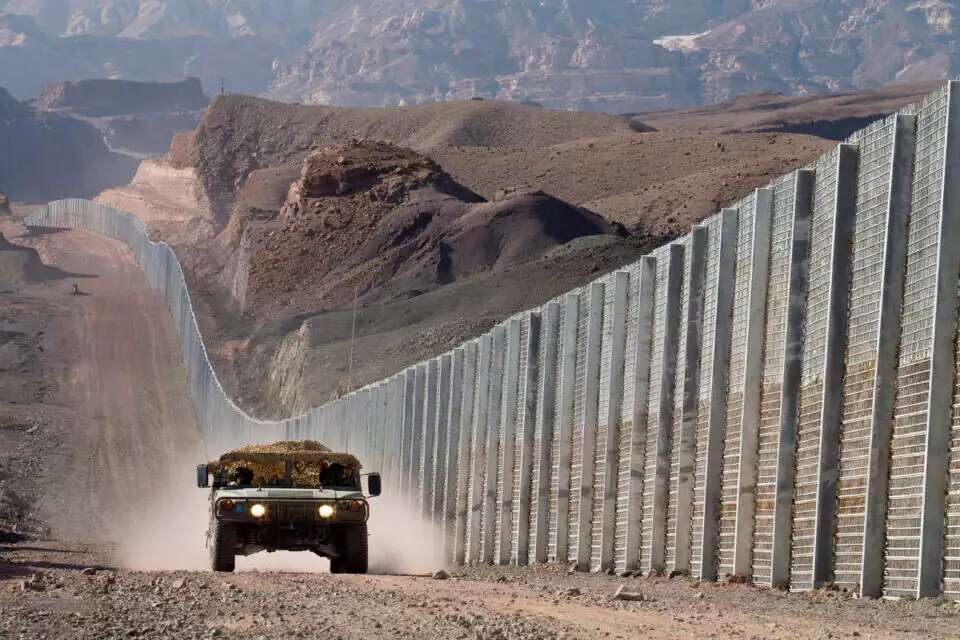In recent weeks, Israeli media have reported extensively on the reinforcement of Egyptian forces in Sinai, describing blatant violations of the peace treaty and even suggesting the possibility of war. Social media has been flooded with videos showing tanks, armored personnel carriers, logistical equipment, and Egyptian soldiers entering Sinai. Adding to this, since 2004, Egypt has built 60 crossings (bridges and tunnels) over the Suez Canal and established dozens of ammunition depots, underground storage facilities, logistics centers, and fuel reserves in Sinai, painting a concerning picture.
Over the past few decades, the Egyptian military has undergone significant upgrades. Its military capabilities have expanded since General Abdel Fattah el-Sisi came to power. He has increased the army's involvement in the economy and domestic politics and has accelerated the modernization of Egypt's armed forces since 2014. The official justification for this was the need to combat terrorism by ISIS and the Muslim Brotherhood, to project power against Ethiopia, which, according to Egypt, threatens to dry up the Nile with its Grand Renaissance Dam, and to prevent terrorist elements from Libya's western border from infiltrating Egypt.
However, ISIS, Ethiopia, and Libya are merely pretexts. In reality, despite the peace agreement, Egypt has always regarded Israel as an enemy. In its education system, culture, and media, Israel is portrayed as an oppressive, murderous foreign occupier and an imperialist threat to regional peace.

Normalization is not on the table. When the Egyptian public is stirred by Israeli military operations in Gaza or Lebanon, it is evident. Even when then-US President Barack Obama threatened to freeze military aid to Egypt following el-Sisi's 2013 coup, Egyptian political movements across the spectrum called for canceling the Camp David Accords and severing ties with the US.
Moreover, the perception of Israel as an "eternal enemy" is also rooted in a psychological barrier: Israel is a small, modern nation that has managed to transform desert wastelands into thriving landscapes. It is a cohesive society despite its internal disputes. It stands as an example of a flourishing democracy despite existential challenges and threats, whereas Egypt, under dictatorial rule, has struggled and failed.
To counter what it perceives as the Israeli threat, Egypt maintains the 11th-largest army in the world, boasting an air force with approximately 600 aircraft (including 350 fighter jets), an armored corps with around 5,300 tanks, and an overall force of 460,000 active-duty soldiers and 480,000 reservists.
However, a deeper look at the data reveals that Egypt's military is outdated. Domestically, it aims to project strength and national pride, while regionally, it seeks to portray itself as an Arab powerhouse. About half of its tanks date back to the Soviet era. While its air force includes 168 F-16 fighter jets, the rest consists mainly of older Mirage and MiG-29 aircraft.
A collapse of the peace agreement and an Egyptian-Israeli war would cross a red line for the US, triggering a devastating crisis in relations with Washington. Could Egypt sustain a prolonged war if the US were to cut off its ammunition and spare parts supply? Could Egypt's sheer numbers, traditionally an advantage for the Arab side, stand up to Israeli technological superiority? Egypt has not fought a war since 1973. That is why, contrary to popular sentiment, successive Egyptian regimes, from Hosni Mubarak to Mohamed Morsi (of the Muslim Brotherhood) to el-Sisi, have opted to maintain the peace.
For Egypt, peace is a foundation of internal stability, a gateway to international cooperation and Western aid, and a means to allocate budgets toward domestic development (such as the construction of New Cairo). This does not make the Egyptian military any less formidable, particularly in light of its infrastructure buildup in Sinai. However, there is no need to escalate rhetoric or frame Egypt as an imminent threat.
Israel can protest and demand explanations, but disputes should be resolved through the existing diplomatic channels between Jerusalem and Cairo. Ultimately, peace remains a shared Israeli-Egyptian interest.



